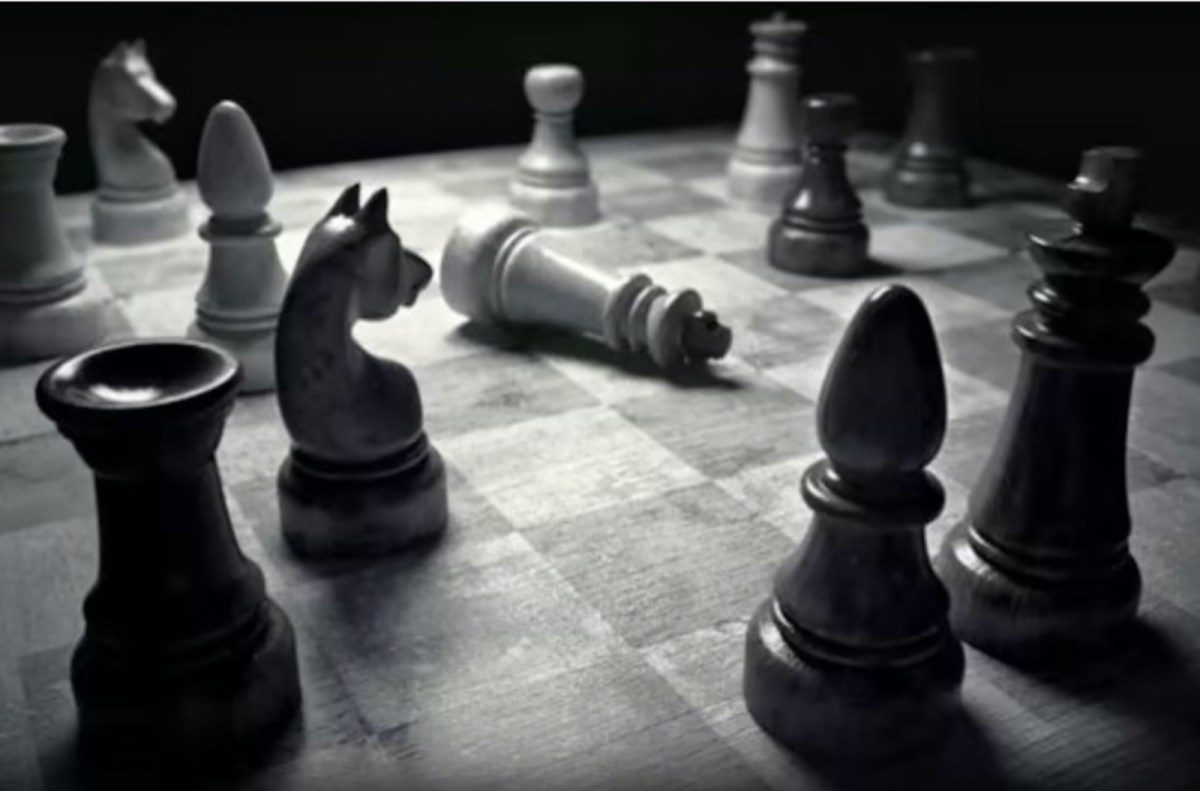Global Courant 2023-05-22 08:41:12
For ancient Russian chess masters, the position is known. It is a zugzwang: when a legal move worsens the player’s situation, Moscow’s. Here may be China’s luck. Beijing can take a few lessons from Russia’s predicament.
Last week’s summit of the five ex-Soviet Central Asian republics (Kazakhstan, Kyrgyzstan, Uzbekistan, Tajikistan and Turkmenistan) in Xi’an signaled China’s desire to enter the region as it feels Russia is loosening its grip there. lose it.
Beijing apparently fears a power vacuum in Central Asia, crucial to its Belt and Road Initiative (BRI). Moscow is engrossed in its war in Ukraine and there could be a political crisis in the country.
Thirty years ago, with the fall of the Soviet Union, China saw the Central Asian republics become independent and more unstable. But fearing to annoy Russia, China did not act to stabilize the situation. Then other political actors intervened, including the United States, much to the chagrin of Russia and China. Now China wants to prevent and avoid that.
Chinese President Xi Jinping on May 19 unveiled an ambitious, comprehensive proposal to help landlocked Central Asia develop — from building infrastructure networks to boosting trade — while avoiding “external interference.”
It is unclear whether India, Russia, Iran or just the United States should be considered “external interference”. In January 2022, shortly before the Ukrainian invasion, Russia supported a coup in Kazakhstan, and some Kazakh leaders ran to Beijing for help.
Beijing offered to create synergistic development strategies with the five Central Asian countries. “The world needs a Central Asia that is stable, prosperous, harmonious and well-connected,” Xi said.
At the same time, the countries must jointly oppose “external interference” in the internal affairs of regional countries and attempts to unleash “color revolutions”, protests supported by the United States.
They must also maintain zero tolerance against terrorism, separatism and extremism, Xi said. It reminded the five provinces of previous support for anti-Beijing activities in China’s western Xinjiang region, inhabited by Uighurs, a Turkic minority close to the population of four of the five republics.
Chinese President Xi Jinping and Kazakhstan’s leader Kassym-Jomart Tokayev in an archive photo. Image: Facebook
“China is ready to help Central Asian countries improve their law enforcement, security and defense capabilities,” Xi added.
It is not clear how much real support the proposal will have. The republics are eager to join China’s economic engine and connect to the eastern ports. But local people are also wary of China’s pervasive economic penetration and are alarmed by the recent widespread crackdown on Uyghurs in Xinjiang.
In any case, the five countries are going ahead with the plan for now, and in the future China could iron out many sides of its activities in the republics if it pays close attention.
Russia from Asia?
In any case, China’s move signals and could even precipitate a Russian loss of power in the region. It builds on another important concession. Beijing reported that Russia is giving in to Chinese use of Vladivostok port for the first time.
It is a breakthrough for the landlocked northwestern provinces of Jilin and Heilongjiang. While the details are still unclear, the deal exposes Vladivostok to de facto absorption by China.
The Russian city has only 600,000 inhabitants, compared to some 100 million Chinese who cross the border. In addition, China’s economic powerhouse could easily roll all of Russia’s business into the city once the gates are open.
China’s northeast, formerly Manchuria, an economic straggler in the country for some 40 years, has boomed in the past year, driven by Russian demand for low-cost industrial products that have been unavailable through Western exporters since the start of the war .
Opening Vladivostok could transform the region’s economy, but would de facto reduce Moscow’s local political influence. Many Russians from Siberia already go on holiday in Hainan and shop in Shanghai. The trend would only accelerate.
It was a scenario Russia tried to avoid for more than a century. During this time, Russia apparently believed that the key to long-term control of Vladivostok was to isolate the city from the neighboring overwhelmingly Chinese environment. Now Moscow is breaking its age-old vows.
Russia apparently does this because it needs Chinese quit aid to survive the war. It also sets a precedent for China. Whatever happens to Russia in the future, once Vladivostok is connected to its Chinese backyard, it will be harder to slam the gates.
In short, Russia is slipping out of Siberia to gain China’s support for the war in the West and because it’s hard to hold on to the Far East while occupied by conflict elsewhere.
East and West lose
Meanwhile, Russia is also not winning in the West. The three main goals of the Ukrainian war (to control Kyiv, split the EU and drive the US out of Europe) have been lost.
Former iron allies quarrel out of the Russian bear hug. Belarus denied Russia its bases for the winter offensive; its president Alexander Lukashenko was reportedly ill and was out of the public eye for about three weeks. Moldova is withdrawing from its alliance with Russia, and another staunch pro-Russian ally, Armenia, reaches out to the Western powers, unsure of Russia’s future influence.
Meanwhile, the war in Ukraine is not progressing. After five months of offensive and on the eve of a Ukrainian counter-offensive, Moscow has not even captured the city of Bakhmut. There are deeper rifts between the Russian military and the Wagner Group, the mercenaries spearheading the recent attacks. Mysterious terrorist attacks have claimed the lives of two prominent pro-war “influencers” (Tatiana Dugina and Vladlen Tatarsky), and a bizarre drone attempted to hit one of the Kremlin’s domes.
A patch on the sleeve of the Wagner Group. Image: Facebook
In short, Russia is losing to East and West and there is no real turnaround in sight. Russian President Vladimir Putin failed in his Ukrainian gamble, but more generally his mode of development was a failure. After the Russian financial crisis of 1998, the Moscow elites gradually began to convince themselves that Western capitalism was not Russia’s cup of tea.
They could not go back to the failed Soviet socialism, so they went back to the time of tsarism. Society was organized as it was then. There was a new Tsar, Putin, with an existential connection to the refurbished Russian Orthodox Church headed by Patriarch Kirill.
There was no longer a court of land-owning old aristocrats who monopolized the economy, but a court of new oligarchs who monopolized industry and resources. It was all secured by rich oil and gas exports and a powerful nuclear arsenal. It all replaced and reformed the massive tsarist grain exports and the invincible army.
The pattern was well oiled in the bones of the Russian people and easier to apply than the mysterious ways international capital throws the Russian economy left and right.
The Tsarist pattern implied a 19th century national pride, i.e. territorial affirmation against the Chechen uprising, first against all other enemies, real or imagined, on the Russian frontiers.
Nationalism was the cheap compensation for the Russian needy, cut off from the vast wealth accumulation of the Moscow court. It was national pride rather than access to middle-class security, unattainable without a true market economy.
It was a slow slide that gained speed over time and was also secured for a time by US efforts to appease Russia and gain its support against the US strategic enemy, China. It may have been until the price of reconciliation outweighed the possible gains from the invasion of Ukraine.
Then the current Western and Eastern failures of Russia are the failures of the neo-tsarist model and the failure to adapt to a fully-fledged market economy. If so, it calls for a reevaluation of the entire Russian experience of the 1990s. Gorbachev and Yeltsin did not cause the fall of the USSR; they tried to retreat and salvage what was possible in a country that was falling apart.
Have the US and the West done enough? Did they hurt Russian pride? Maybe, maybe not. Indeed, the US and the West have done something for Russia. They invested, sent aid to Russia and supported the relocation of Ukrainian and Kazakh nuclear arsenals to Russia. The Russian invasion and perhaps the recent summit in Xi’an would have been impossible without that step.
Gorbachev’s Revenge
In retrospect, if Moscow hadn’t reverted to its old ways after the 1998 Russian crisis, but stuck to its market-oriented path, it wouldn’t be here. It would be somewhere else.
History is not a video game where you can start over and there are set patterns of development. Ifs and buts don’t make history, as Croce put it. Yet, after a disastrous quarter of a century, one cannot but think that many things have gone wrong, not with Gorbachev and Yeltsin, but with Putin. Although, in fairness, it is understandable that after the crisis of 1998, the Russian elites preferred the tried and tested Tsarist model to the new, untested Western model.
Gorbachev and a young Putin. Image: Facebook
Here are two different lessons. It may be time for Russia to check the losses. The longer the war lasts, the more Putin’s Russia will have disappeared.
It is different for Beijing. It may all be due to the good fortune of China, the country’s pole star for the past half century. The Russian crisis not only allows Beijing to penetrate Central Asia and encircle Vladivostok and eastern Siberia, but more importantly, at a crucial crossroads in its history, it may avoid falling into Putin’s trap.
Is it time for China to return to imperial structures or to open up doubly? The answer may not be the most pleasant and comfortable, but it must be the truest.
This essay first appeared on Settimana News and has been republished with permission. The original article can be read here.
Similar:
Loading…








